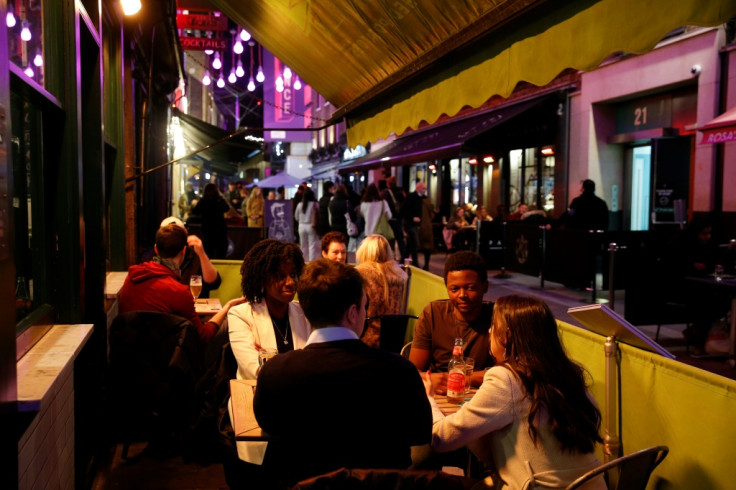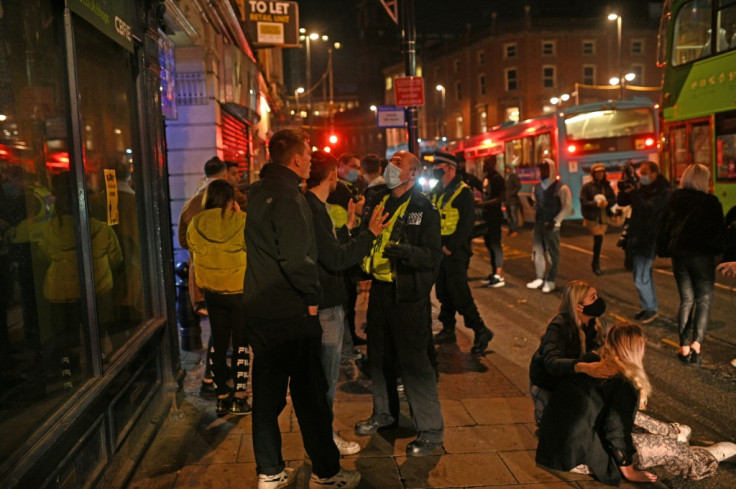Reluctant last orders as England enters new lockdown
While opinion polls suggest overall public backing for the stay-at-home policy, concerns are mounting about the impact on the economy and on mental health.
After downing a final round of drinks, queueing outside soon-to-close shops or getting a last haircut, England's 56 million people entered a second coronavirus lockdown on Thursday with more doubts about the stringent policy than the first time around.
Prime Minister Boris Johnson abandoned a recently introduced system of regional curbs and announced an England-wide shutdown, after dire warnings that hospitals could soon be overwhelmed with Covid-19 cases. The death toll is hitting six-month highs.
But while opinion polls suggest overall public backing for the stay-at-home policy, concerns are mounting about the impact on the economy and on mental health. A sizeable minority of 32 Conservative MPs voted against the measures on Wednesday.
When the country entered its first lockdown in bright March springtime, support was strong. But compliance with coronavirus measures has been fraying the longer they drag on into the winter, as people's livelihoods come under greater strain.
"We will be paying this off for years," said Joe Curran, the landlord of The Queen's Head pub in the Soho area of central London. "This lockdown will cost us thousands on top of the thousands so far."

A new study of more than 6,000 adults by King's College London found one-quarter believed they had already contracted Covid-19 during the first wave, a much higher level of infection than government scientists estimate.
Many in the study stated they were therefore immune and free to breach lockdown rules.
Johnson, the Conservative leader, stressed that the latest measures would end "automatically" on December 2, when England will revert to a tiered system of curbs to reflect differing infection levels in individual regions.
Britain is among the world's hardest-hit countries with nearly 48,000 deaths linked to the coronavirus from just over one million positive cases.
A total of 492 deaths within 28 days of a positive test were recorded on Wednesday -- the highest number since mid-May.
England joined the other nations of the UK -- Scotland, Wales and Northern Ireland -- in imposing another lockdown, in line with European nations including France and Germany.

A new study of more than 6,000 adults by King's College London found one-quarter believed they had already contracted Covid-19 during the first wave, a much higher level of infection than government scientists estimate.
Many in the study stated they were therefore immune and free to breach lockdown rules.
Johnson, the Conservative leader, stressed that the latest measures would end "automatically" on December 2, when England will revert to a tiered system of curbs to reflect differing infection levels in individual regions.
Britain is among the world's hardest-hit countries with nearly 48,000 deaths linked to the coronavirus from just over one million positive cases.
A total of 492 deaths within 28 days of a positive test were recorded on Wednesday -- the highest number since mid-May.
England joined the other nations of the UK -- Scotland, Wales and Northern Ireland -- in imposing another lockdown, in line with European nations including France and Germany.
"When I look at what is happening now among some of our continental friends, and I see doctors who have tested positive being ordered to work on Covid wards and patients airlifted to hospital in some other countries simply to make space, I can reach only one conclusion," Johnson told parliament.
"I'm not prepared to take the risk with the lives of the British people."
The restrictions include a return to working from home where possible and the closure of all non-essential shops and services, including pubs, bars and restaurants. Schools will remain open.
In English cities, crowds gathered at pubs before staff called last orders in the hours before the new curbs took effect. Hairdressers have been deluged this week, and lengthy queues snaked outside clothes shops Wednesday.
The leader of the main opposition Labour party, Keir Starmer, told Johnson in parliament that it would be "madness" to end the measures in four weeks if cases are still rising then.
But the prime minister pointed to a city-wide testing pilot launching in Liverpool on Friday, as a precursor to a nationwide programme which he hopes will finally get the coronavirus under control before a vaccine comes on-stream.
"We will then (on December 2), I hope very much, be able to get this country going again, to get businesses, to get shops open again in the run-up to Christmas," Johnson said.
Finance minister Rishi Sunak will detail new financial support measures on Thursday, the government said.
Also Thursday, the Bank of England is expected at its latest policy meeting to boost its cash stimulus to fight the pandemic's economic fallout, with another ?100 billion ($130 billion, 111 billion euros) coming on tap.
Copyright AFP. All rights reserved.
This article is copyrighted by International Business Times, the business news leader





















